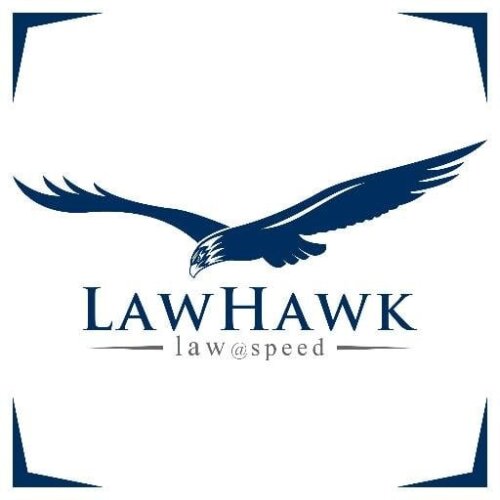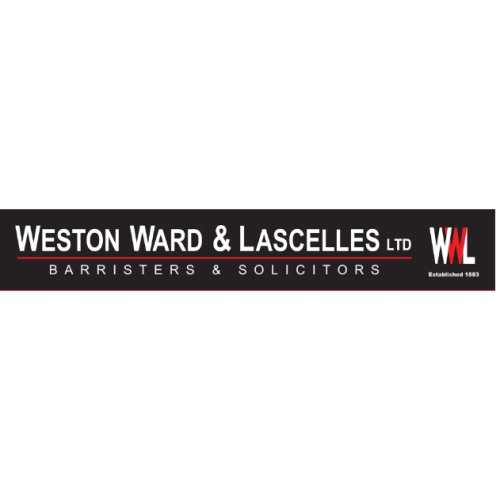Best Corporate Governance Lawyers in New Zealand
Share your needs with us, get contacted by law firms.
Free. Takes 2 min.
Or refine your search by selecting a city:
List of the best lawyers in New Zealand
About Corporate Governance Law in New Zealand
Corporate governance refers to the system of rules, practices, and processes by which a company is directed and controlled. In New Zealand, corporate governance focuses on balancing the interests of a company's stakeholders, including shareholders, management, customers, suppliers, financiers, government, and the community. Strong corporate governance frameworks are vital in promoting transparency, accountability, and trust within organizations. New Zealand’s approach combines statutory requirements with best practice guidelines, aiming to ensure responsible business conduct and sustainable long-term success for companies.
Why You May Need a Lawyer
In the realm of corporate governance, legal professionals play a crucial role in helping companies comply with relevant laws and standards. You may need a lawyer in situations such as:
- Setting up a new company or restructuring an existing one
- Drafting and reviewing governance policies, constitutions, and codes of ethics
- Advising directors and officers about their legal duties and responsibilities
- Dealing with conflicts of interest, related party transactions, and potential breaches of duty
- Managing shareholder disputes or legal claims against directors
- Navigating takeovers, mergers, or acquisitions
- Ensuring compliance with financial reporting and disclosure obligations
- Assisting with investigations by regulatory bodies
A lawyer can provide tailored advice, mitigate risks, and help resolve issues efficiently and lawfully.
Local Laws Overview
Several key laws and guidelines form the foundation of corporate governance in New Zealand:
- Companies Act 1993 - This central statute outlines the powers, duties, and responsibilities of company directors, secretary, and shareholders.
- Financial Markets Conduct Act 2013 - Provides rules for offering, trading, and dealing in financial products and governs disclosures to investors.
- Takeovers Code Approval Act 2000 and Takeovers Code - Sets out processes for takeovers of New Zealand listed companies to protect minority shareholders.
- New Zealand Corporate Governance Code - Published by the NZX (New Zealand’s stock exchange), this code recommends best practices for listed companies, including principles on board composition, disclosure, and risk management.
- Anti-Money Laundering and Countering Financing of Terrorism Act 2009 - Imposes specific obligations on companies regarding financial record keeping and reporting certain activities.
- Insolvency law, consumer law, privacy and data protection legislation also have implications for governance practices.
Frequently Asked Questions
What are the main responsibilities of company directors under New Zealand law?
Directors must act in good faith, in the best interests of the company, avoid conflicts of interest, and comply with statutory duties such as ensuring the company does not trade while insolvent.
Are there minimum requirements for board composition in New Zealand?
Yes, all companies must have at least one director living in New Zealand, and the Companies Act 1993 outlines other specific requirements, especially for listed or large companies.
What is the NZX Corporate Governance Code?
It is a set of voluntary principles and best practice recommendations for listed companies in New Zealand, aiming to promote high standards in transparency, ethics, and management.
Do shareholders have rights to access company information?
Shareholders have certain rights to receive annual reports, attend meetings, and access company records as prescribed under the Companies Act 1993.
What should companies do to manage conflicts of interest at a governance level?
Directors must disclose any conflicts and, depending on the situation, may need to abstain from decision making or even resign, ensuring transparency and compliance with statutory requirements.
How are disputes between directors and shareholders resolved?
Disputes may be resolved through negotiation, mediation, arbitration, or by seeking court intervention under the Companies Act.
Can a company indemnify its directors?
Yes, but only under certain circumstances and following the Companies Act 1993, which sets limits to prevent indemnifying directors for negligence or breaches of duty.
When must a company disclose financial information to regulators or the public?
Disclosure is required annually for registered companies and more frequently for listed companies, especially if significant events impact their financial position or share price.
What happens if a director breaches their duties?
Directors can face penalties including removal, compensation orders, disqualification, and in some cases, criminal prosecution.
Are there particular governance requirements for charitable or non-profit organizations?
Yes, such organizations may be governed by different statutes and must comply with specific reporting and governance obligations set out by the Charities Act and related regulations.
Additional Resources
- Companies Office - The main government registry for companies, providing forms, guidance, and information about director and shareholder obligations.
- Financial Markets Authority (FMA) - Regulates New Zealand’s financial markets and provides corporate governance information for listed entities.
- NZX Regulation - Offers guidance for companies listed on the New Zealand Stock Exchange and monitors compliance with the NZX Corporate Governance Code.
- Institute of Directors New Zealand - Offers training, resources, and information on director responsibilities and best corporate governance practices.
- Ministry of Business, Innovation, and Employment (MBIE) - Publishes official guidance and updates on business law and corporate regulation.
Next Steps
If you require legal assistance with corporate governance issues in New Zealand:
- Identify the specific nature of your concern or question, such as director duties, board structure, or compliance obligations.
- Gather relevant company documents, such as the constitution, shareholder agreements, minutes, and recent correspondence.
- Seek out a qualified lawyer or legal advisor with experience in New Zealand corporate governance law. Check their credentials and professional memberships.
- Prepare a list of questions or topics you want to address in your consultation.
- Take advantage of resources from the Companies Office or other official bodies as preparation.
- Act promptly, especially if facing deadlines, regulatory investigations, or potential disputes.
Expert legal advice can help you understand your obligations, manage risks, and ensure your company operates within the law.
Lawzana helps you find the best lawyers and law firms in New Zealand through a curated and pre-screened list of qualified legal professionals. Our platform offers rankings and detailed profiles of attorneys and law firms, allowing you to compare based on practice areas, including Corporate Governance, experience, and client feedback.
Each profile includes a description of the firm's areas of practice, client reviews, team members and partners, year of establishment, spoken languages, office locations, contact information, social media presence, and any published articles or resources. Most firms on our platform speak English and are experienced in both local and international legal matters.
Get a quote from top-rated law firms in New Zealand — quickly, securely, and without unnecessary hassle.
Disclaimer:
The information provided on this page is for general informational purposes only and does not constitute legal advice. While we strive to ensure the accuracy and relevance of the content, legal information may change over time, and interpretations of the law can vary. You should always consult with a qualified legal professional for advice specific to your situation.
We disclaim all liability for actions taken or not taken based on the content of this page. If you believe any information is incorrect or outdated, please contact us, and we will review and update it where appropriate.
Browse corporate governance law firms by city in New Zealand
Refine your search by selecting a city.














